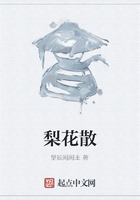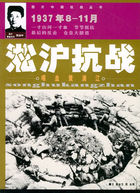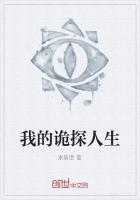I looked at my blanket and at my pillow and at all my belongings, hung so carefully at the foot of my bed." He asked permission to stay there another day. He had become accustomed to everything, and when once he was out again, and free, he was like a man who feels ill at ease.
He took part in the affair of the 15th of May, and this is what gives a tragic, and at the same time comic, character to the episode.
Under pretext of manifesting in favour of Poland, the National Assembly was to be invaded. Barbes did not approve of this manifestation, and had decided to keep out of it. Some people cannot be present at a revolutionary scene without taking part in it, and without soon wanting to play the chief part in it. The excitement goes to their head. Barbes seems to have been obeying in instinct over which he had no control, for, together with a workman named Albert, he headed the procession which was to march from the Chamber of Deputies to the Hotel de Ville and establish a fresh Provisional Government.
He had already commenced composing the proclamations to be thrown through the windows to the people, after the manner of the times, when suddenly Lamartine appeared on the scene with Ledru-Rollin and a captain in the artillery. The following dialogue then took place:
"Who are you?"
"A member of the Provisional Government."
"Of the Government of yesterday or of to-day "Of the one of to-day.""In that case I arrest you."
Barbes was taken to Vincennes. He had been free rather less than three months, when he returned to prison as though it were his natural dwelling-place.
George Sand admired him just as much after this as before. For her, the great man of the Revolution was neither Ledru-Rollin, Lamartine, nor even Louis-Blanc; it was Barbes. She compared him to Joan of Arc and to Robespierre. To her, he was much more than a mere statesman, this man of conspiracies and dungeons, ever mysterious and unfortunate, always ready for a drama or a romance. In her heart she kept an altar for this martyr, and never thought of wondering whether, after all, this idol and hero were not a mere puppet.
The skirmish of May 15 undeceived George Sand very considerably.
The June insurrection and the civil war, with blood flowing in the Paris streets, those streets which were formerly so lively and amusing, caused her terrible grief. From henceforth her letters were full of her sadness and discouragement. The most gloomy depression took the place of her former enthusiasm. It had only required a few weeks for this change to take place. In February she had been so proud of France, and now she felt that she was to be pitied for being a Frenchwoman. It was all so sad, and she was so ashamed.
There was no one to count upon now. Lamartine was a chatterer;Ledru-Rollin was like a woman; the people were ignorant and ungrateful, so that the mission of literary people was over. She therefore took refuge in fiction, and buried herself in her dreams of art.
We are not sorry to follow her there.
_Francois le Champi_ appeared as a serial in the _Journal des Debats_.
The _denouement_ was delayed by another _denouement_, which the public found still more interesting. This was nothing less than the catastrophe of the July Monarchy, in February, 1848.
After the terrible June troubles, George Sand had been heartbroken, and had turned once more to literature for consolation.
She wrote _La Petite Fadette_, so that the pastoral romances and the Revolution are closely connected with each other.
Beside the novels of this kind which we have already mentioned, we must add _Jeanne_, which dates from 1844, and the _Maitres Sonneurs_, written in 1853. This, then, completes the incomparable series, which was the author's _chef-d'oeuvre_, and one of the finest gems of French literature. This was George Sand's real style, and the note in literature which was peculiarly her own. She was well fitted for such writing, both by her natural disposition and by circumstances.
She had lived nearly all her life in the country, and it was there only that she lived to the full. She made great efforts, but Paris certainly made her homesick for her beloved Berry.
She could not help sighing when she thought of the ploughed fields, of the walnut-trees, and of the oxen answering to the voice of the labourers.
"It is no use," she wrote about the same time, "if you are born a country person, you cannot get used to the noise of cities.
It always seems to me that our mud is beautiful mud, whilst that here makes me feel sick. I very much prefer my keeper's wit to that of certain of the visitors here. It seems to me that I am livelier when I have eaten some of Nannette's wheat-cake than Iam after my coffee in Paris. In short, it appears to me that we are all perfect and charming, that no one could be more agreeable than we are, and that Parisians are all clowns."[46]
[46] _Correspondance:_ To. Ch. Duvernet, November 12, 1842.
This was said in all sincerity. George Sand was quite indifferent about all the great events of Parisian life, about social tittle-tattle and Boulevard gossip. She knew the importance, though, of every episode of country life, of a sudden fog or of the overflowing of the river. She knew the place well, too, as she had visited every nook and corner in all weathers and in every season.
She knew all the people; there was not a house she had not entered, either to visit the sick or to clear up some piece of business for the inmates. Not only did she like the country and the country people because she was accustomed to everything there, but she had something of the nature of these people within her. She had a certain turn of mind that was peasant-like, her slowness to take things in, her dislike of speech when thinking, her thoughts taking the form of "a series of reveries which gave her a sort of tranquil ecstasy, whether awake or asleep."[47] It does not seem as though there has ever been such an _ensemble_ of favourable conditions.
[47] See in _Jeanne_ a very fine page on the peasant soul.














